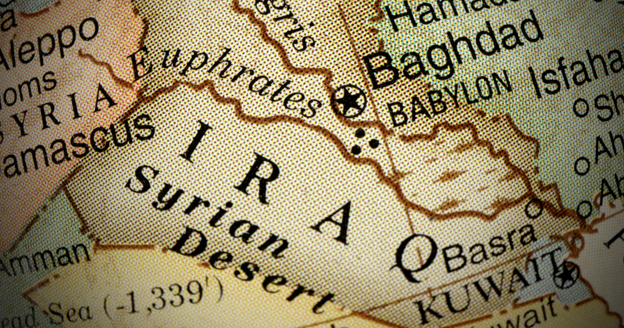By: Nahro Zagros, Senior Fellow
Iraq’s parliament is pushing forward a dangerous piece of legislation that would turn the Iran-backed Popular Mobilization Forces (PMF) into a permanent part of the state. The law would formalize the group’s military structure, create a dedicated academy, and promote its leader—who’s under U.S. sanctions for human rights abuses—to ministerial rank. It’s a move that would not only legitimize a powerful, Iranian-aligned armed force within Iraq’s official security system but also deepen Iran’s hold over the country’s institutions.
The PMF was originally formed in 2014 to help fight ISIS, but it has since evolved into a sprawling network of over 70 factions, including several that Washington designates as terrorist organizations. These militias have attacked U.S. forces, killed civilians, threatened religious minorities, and even launched drones at neighboring countries. Yet Prime Minister Mohammed Shia al-Sudani, backed by the Iran-aligned Coordination Framework, continues to support the bill—claiming it will bring the PMF under state control. In practice, it would do the opposite: protect them from oversight and further empower Tehran’s proxies.
The U.S. has every reason to be alarmed. Institutionalizing the PMF would effectively formalize Iran’s military presence inside Iraq, undermining the fragile sovereignty that Iraq still claims and throwing regional stability into further uncertainty. If this bill becomes law, Washington cannot afford to treat it as just another diplomatic concern—it must respond with clarity and force. That starts with accelerating the withdrawal of U.S. troops from the Arab parts of Iraq, where American forces are increasingly exposed and unwelcome.
But withdrawal alone isn’t enough. The U.S. should hit PMF-linked companies with new sanctions, publicly release intelligence documenting militia abuses, and make it clear that political and economic engagement with Baghdad will come at a cost. Prime Minister Sudani’s long-sought visit to Washington should be taken off the table. And as Iraq drifts closer to becoming a client state of Iran, the U.S. should deepen its ties with more trustworthy allies by establishing a permanent military presence in the Kurdistan Region—a place where American interests and local leadership still align.
Nahro Zagros is a senior fellow at the Gold Institute for International Strategy, a Washington, DC based foreign-policy and defense think-and-do-tank.
